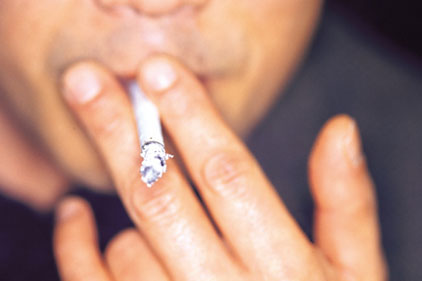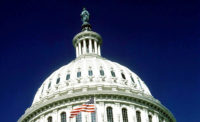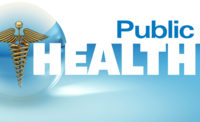 Legislation to equalize tax rates on all tobacco products is getting endorsed by American Public Health Association (APHA), which says it will help reduce tobacco use – and raise revenue.
Legislation to equalize tax rates on all tobacco products is getting endorsed by American Public Health Association (APHA), which says it will help reduce tobacco use – and raise revenue.
The bill introduced last week by U.S. Senator Richard Durbin (D-IL) would close loopholes in federal tobacco tax rates by including all tobacco products – including pipe tobacco, cigars and smokeless tobacco – in equalized tax rates.
The APHA said exempting those items from the Children's Health Insurance Reauthorization Act of 2009 which increased the federal tax on cigarettes encouraged the use of lower-taxed tobacco products and cost governments more than a billion dollars in revenue since 2009.
“We applaud Senator Durbin for taking action to help the government recover lost tax revenue while improving health and saving lives,” according to a statement released by the APHA. Senators Frank Lautenberg (D-NJ) and Richard Blumenthal (D-CT) joined him in introducing the legislation.
Because larger cigars, smokeless tobacco and pipe tobacco remained taxed at dramatically lower rates than cigarettes, they were more affordable to young people.
“In particular, roll-your-own tobacco has falsely been labeled as pipe tobacco, and small cigar manufacturers have shifted to lower-taxed products. While cigarette sales declined significantly after the 2009 tobacco tax increase, the availability of lower-taxed products has encouraged use of these products.”
According to a Government Accountability Office study issued in April, the disparity in tax rates "created opportunities for tax avoidance and led to significant market shifts by manufacturers and price sensitive consumers toward lower taxed products." The GAO found that monthly sales of lower-taxed pipe tobacco jumped from 240,000 pounds in January 2009 to more than 3 million pounds in September 2011, while roll-your-own tobacco sales dropped from 2 million pounds to 315,000 pounds. During the same period, large cigar sales increased from 411 million to more than 1 billion, while small cigars dropped from about 430 million to 60 million.
Federal revenue losses due to these market shifts range from $615 million to $1.1 billion from April 2009 through fiscal year 2011, the GAO estimated. A separate study by the Centers for Disease Control and Prevention found that the relabeling of roll-your-own tobacco as pipe tobacco cost federal and state governments $1.3 billion in revenue from April 2009 to August 2011.
The GAO recommended that Congress consider equalizing tax rates on roll-your-own and pipe tobacco and consider options for reducing tax avoidance due to the rate differential between small and large cigars. Senator Durbin's bill would fix these disparities by increasing taxes on under-taxed tobacco products so they are equal to the cigarette tax rate. Among other steps, it would increase the pipe tobacco tax to the same rate as roll-your-own tobacco. It would also ensure that all large cigars are taxed at least as much as a cigarette and would increase the current maximum tax for a large cigar to about $1. The bill would also increase the tax rate for snuff and chewing tobacco so that it approximates the tax on a pack of cigarettes.
“By closing these revenue-losing loopholes, the Durbin bill will reduce tobacco consumption and save lives,” says the APHA. “ The evidence is clear that raising tobacco prices through higher taxes is one of the most effective ways to reduce tobacco use, especially among children. Closing these loopholes will help more Americans quit using tobacco and help prevent young people from getting hooked in the first place.”
The recent Surgeon General's report called tobacco use a "pediatric epidemic," and pointed to increased smokeless tobacco use among high school students, as well as increased use of cigars, as growing concerns. Senator Durbin's bill will help stem these disturbing trends
Tobacco use remains the leading cause of preventable deaths in the United States, killing more than 400,000 Americans each year and costing $96 billion in health care expenditures annually. Senator Durbin today has taken important action to reduce tobacco's terrible toll on our nation.
Founded in 1872, the APHA is the oldest, largest and most diverse organization of public health professionals in the world. The association aims to protect all Americans and their communities from preventable, serious health threats and strives to assure community-based health promotion and disease prevention activities and preventive health services are universally accessible in the United States. APHA represents a broad array of health providers, educators, environmentalists, policy-makers and health officials at all levels working both within and outside governmental organizations and educational institutions. More information is available at www.apha.org.


